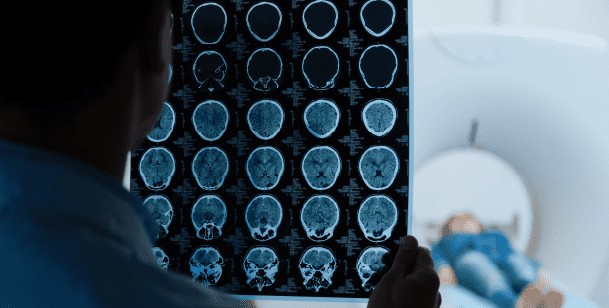In emergency situations, rapid and accurate diagnosis is paramount. Medical professionals in emergency rooms require access to the best diagnostic tools to quickly and effectively assess a patient’s condition. Understanding the different types of diagnostic scans available, such as CT scans, X-rays, and MRI scans, can be confusing when you’re seeking urgent medical attention. This article will provide you with essential information about CT scan urgent care in Houston, explaining what CT scans are, how they work, and why they are a crucial diagnostic tool in urgent care settings.
Understanding CT Scans and Their Importance in Urgent Care
A CT scan, or Computerized Tomography scan, is an advanced medical imaging technique that creates detailed images of the inside of your body. It’s far more comprehensive than a standard X-ray, allowing healthcare providers to thoroughly examine bones, muscles, organs, and blood vessels. By combining X-rays with sophisticated computer technology, CT scans produce cross-sectional images, offering a much clearer and more detailed view of internal structures than traditional X-rays.
The ability of a CT scan to provide such detailed imagery makes it invaluable in urgent care and emergency situations. Medical professionals rely on CT scans to diagnose a wide range of conditions quickly and accurately, including:
- Identifying cancers and tumors: CT scans are effective in detecting abnormal growths and masses throughout the body.
- Diagnosing cardiovascular issues: They can help identify heart disease and blood vessel problems.
- Assessing trauma injuries: In cases of accidents or injuries, CT scans can quickly reveal internal injuries, fractures, and bleeding.
- Detecting musculoskeletal disorders: They are useful for diagnosing problems with bones and muscles.
- Identifying internal infections and inflammation: CT scans can pinpoint the location and extent of infections within the body.
For patients requiring urgent medical attention in Houston, access to CT scan urgent care services is critical for timely and effective treatment.
How Does a CT Scan Procedure Work?
The technology behind a CT scan is both sophisticated and patient-friendly. During a CT scan, you will lie on a table that slides into a large, donut-shaped machine called a CT scanner. Inside this machine, an X-ray source rotates around your body, emitting radiation beams as it moves. Opposite the X-ray source is a digital X-ray detector that captures the radiation passing through your body.
 CT images
CT images
Unlike a standard X-ray, which uses a single beam, a CT scan uses multiple beams and detectors to gather information from numerous angles. This allows the machine to measure different tissue densities and even create images within solid organs. As the scanner rotates, it takes numerous “slices” or cross-sectional images of the body. This data is then sent to a computer where it is processed and stacked to create detailed, three-dimensional (3D) images in a matter of minutes. These 3D images provide medical professionals with a comprehensive view, aiding in accurate and rapid diagnoses within an urgent care setting.
CT Scan vs. Traditional X-ray: Understanding the Key Differences
While both CT scans and standard X-rays are valuable tools for medical imaging and utilize radiation to create images of the body’s interior, they differ significantly in their capabilities and applications. Traditional X-rays are particularly effective for visualizing dense structures like bones and teeth because these structures highly absorb radiation. This makes X-rays excellent for detecting major bone fractures and dislocations.
However, standard X-rays have limitations. They use only a single radiation beam, which means they provide a two-dimensional image. Subtle bone injuries, soft tissue details, and internal organs are not well visualized on standard X-rays. They are primarily suited for identifying significant bone-related issues.
CT scans, on the other hand, offer a much more advanced imaging solution. They employ a rotating, motorized X-ray source that encircles the body, capturing a 360-degree view of internal organs, bones, and blood vessels. This rotational approach and the use of multiple detectors allow CT scans to create detailed cross-sectional images, effectively providing a 3D view of the body’s internal structures. This enhanced detail makes CT scans significantly more sophisticated than traditional X-rays, especially for diagnosing complex conditions or issues involving soft tissues and internal organs within an urgent care environment.
Why Urgent Care CT Scans in Houston are Essential
Urgent care centers in Houston equipped with CT scan technology play a vital role in providing rapid and accurate diagnoses for a wide range of medical conditions. These centers utilize CT scans for various diagnostic purposes, including:
- Diagnosing muscle and bone disorders: Providing detailed images to assess injuries and conditions affecting the musculoskeletal system.
- Locating tumors and infections: Identifying abnormal growths and infections in various parts of the body.
- Detecting conditions like cancer and heart disease: Enabling early and accurate detection of serious illnesses.
- Guiding treatment plans: Providing detailed anatomical information to plan medical, surgical, or radiation treatments effectively.
- Monitoring treatment effectiveness: Allowing healthcare providers to compare CT images over time to assess a patient’s response to therapies like chemotherapy and radiation.
In urgent situations where time is critical, the speed and accuracy of CT scans available at urgent care facilities in Houston are invaluable. They offer a less invasive alternative to surgery or biopsies for diagnosing internal issues.
Village Emergency Centers: Your Houston Destination for Urgent Care CT Scans
For individuals in Houston seeking urgent care with CT scan capabilities, Village Emergency Centers offer a comprehensive and efficient solution. Each of our locations is equipped with state-of-the-art CT imaging technology, ensuring you receive a fast and thorough evaluation. Our dedicated team of medical experts is committed to providing you with the highest quality care, 24 hours a day, seven days a week. When you need prompt and accurate diagnostic imaging in an urgent care setting, visit our website and choose Village Emergency Centers for the expert care you deserve in Houston.

